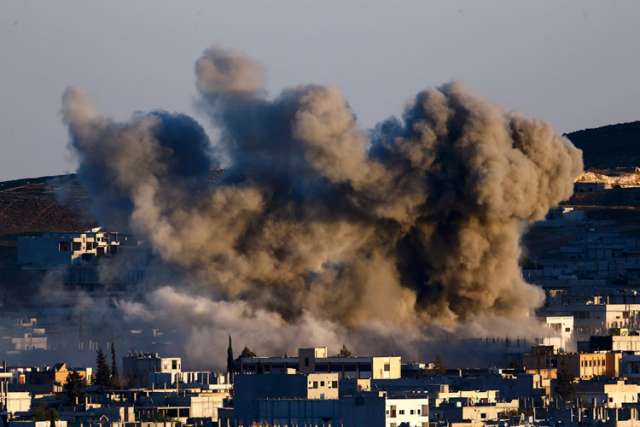"The Holy See has always followed the situation in the Middle East with great interest and concern. It has always pleaded for negotiations and dialogue among the parties involved," said the archbishop, who heads the Holy See's Permanent Observer Mission to the United Nations.
"It has always tried to do all it could to help the victims of violence," he added in a statement to the UN Security Council, which held an open debate on the situation in the Middle East, including "the Israeli-Palestinian question."
"Given the rapidly deteriorating situation in the region during these last months, Pope Francis has intensified his efforts to push for negotiations and call all parties to respect the international humanitarian law and fundamental human rights," Auza said in a statement.
With regard to the Israeli-Palestinian situation, the Vatican has long supported "a two-state solution," he said.
"Israel and Palestine, with the vigourous support of the competent organs of the United Nations and of the whole international community," he said, "must work toward the final objective, which is the realization of the right of the Palestinians to have their own state, sovereign and independent, and of the right of the Israelis to peace and security."
Auza quoted what Pope Francis said about the situation during the pontiff's first trip to the Holy Land in May: "The time has come for everyone to find ... the courage to forge a peace which rests on the acknowledgment by all of the right of two states to exist and to live in peace and security within internationally recognized borders."
Regarding the "horrific situation in Syria," the UN nuncio said the Vatican "urgently calls on all parties to stop the massive violations of international humanitarian law and fundamental human rights, and on the international community to help the parties find a solution."
"There is no other way to alleviate and put an end to the untold sufferings of the entire nation, where half of its population needs humanitarian assistance and around a third has been displaced," Auza said.
The Syrian crisis and the presence of massive numbers of refugees in Lebanon is having a grave effect on that country, he continued, urging that Lebanon "find a solution as soon as possible" to the presidential vacancy there.
"The Holy See reaffirms its support for a sovereign and free Lebanon," he said. "Lebanon is a 'message,' a 'sign' full of hope for the coexistence of the various groups that form it."
Pointing to "the grave violations and abuses" committed by Islamic State militants, Auza called on the necessary UN agencies to take action "to prevent possible new genocides and to assist the increasing number of refugees."
He said the Vatican "appeals in particular for the protection of the ethnic and religious groups, including the Christian communities, who are specifically targeted and victimized because of their ethnic origins and religious beliefs." The right of such communities and all displaced people to return to their homes and to live in dignity and safety must be respected, he added.
Auza said the escalation of terrorism around the globe should be a catalyst for all nations to realize they have a responsibility "to protect people from genocide, war crimes, ethnic cleansing, crimes against humanity and all forms of unjust aggression."
Every religious leader in the entire Middle East region and around the world must promote interreligious and intercultural dialogue, denounce "every use of religion to justify violence" and educate people about the need for mutual respect.
He said the Middle East needs constant prayers but more than that the region "requires ... an adequate response by the international community."


